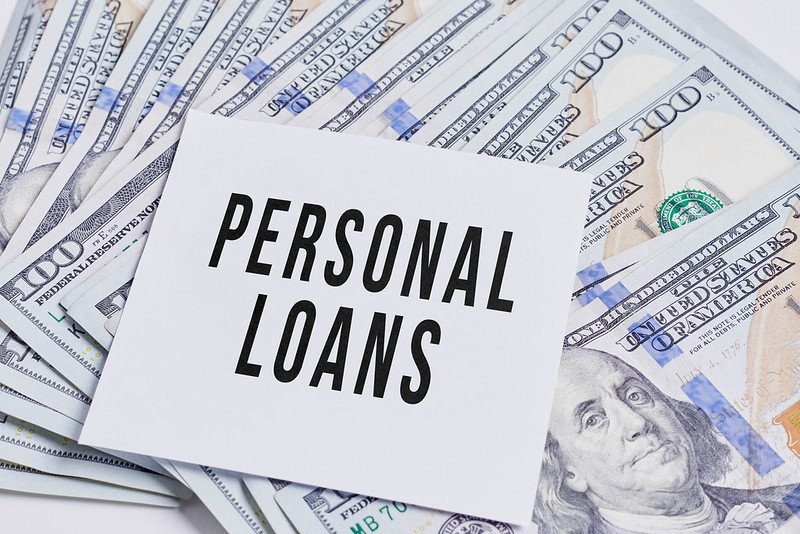Table of Contents Show
People use personal loans for many different purposes, such as paying off debts, covering weddings or major life events, or making home improvements and repairs.
Personal loans typically carry lower interest rates than credit cards, but it’s still essential to read the fine print before taking out a loan. Furthermore, avoid taking out debt for unnecessary expenses.

People can also use personal loans to consolidate multiple debts into one payment, cover medical bills, purchase a car, cover tuition, or finance a vacation.
Additionally, personal loans can be used to start a business, pay off credit card debt, or make a large purchase. Finally, some people use personal loans to fund a real estate investment or to build their credit score.
For those who need assistance, there is now a 24hr online service for all your personal loan needs.
1. Pay Off Credit Card Debt
Paying off credit card debt is an efficient way to utilize personal loans. It can help you reduce interest rates and make lower monthly payments, leading to debt freedom sooner.
Another viable strategy is to take advantage of a balance-transfer credit card with no interest for an agreed-upon period of time. This can be beneficial for those who aren’t ready to commit to paying off a loan but still want to eliminate debt quickly.
To start paying off credit card debt, make sure you’re paying the minimum required on each card each month.
After that is taken care of, try adding any extra cash toward the card with the lowest balance first; this will free up money that could then be put towards a balance transfer or saved into an emergency savings account.
When paying off credit card debt, it’s important to stay disciplined and focused. Make sure to create a budget and stick to it, as this will help ensure you don’t rack up more debt than you can handle.
Additionally, if feasible, try to reduce costs in other areas of your life, such as groceries and entertainment, to help you stay on top of your payments.
Read Also:
2. Weddings
Weddings are an awe-inspiring endeavor that many people meticulously plan. They involve many traditions and rituals which can add up to a considerable expense.
Paying for your wedding with a personal loan can help you stay within budget and eliminate the added costs of interest on the debt. However, it’s essential to remember that these loans are unsecured and could negatively impact your credit score if you fail to make repayments.
Wedding loans can be an ideal way to cover upfront deposits and any unexpected costs that might occur during the planning phase. But it’s essential that you remain mindful of your budget and select a lender who offers you the most competitive interest rate without compromising on the loan amount.
When it comes to financing your wedding, it’s important to consider the long-term financial implications of the loan. While wedding loans can provide you with a much-needed financial lifeline, it’s important to be aware of the risks associated with borrowing.
Before signing any loan agreement, make sure you thoroughly read the terms and conditions and understand any fees that may apply.
3. Home Improvements
Are you looking to add aesthetic value, improve comfort or make your home safer? Many home improvement projects can be accomplished with proper planning and some hard work.
One of the primary motivations for home improvements is that they can increase a home’s value. Generally, renovations that increase your house’s appeal usually lead to faster sales and for more money than if you hadn’t made any changes at all.
In addition to increasing your home’s value, certain home improvements can also be tax-deductible. These include capital improvements that enhance the property’s worth, extend its life, or adapt it for a new use, as well as energy-saving upgrades.
Whether you want to increase the value of your home, make it more comfortable, or just make it look nicer, there are plenty of home improvements you can make. Popular projects include new flooring, painting, landscaping, kitchen, and bathroom remodeling, and outdoor projects such as decks and patios.
4. Car Repairs
Car repairs are an unfortunate necessity that all drivers must endure, yet it can be challenging to fit them into your budget. If money is tight, consider borrowing money for these expenses.
One of the best ways to prevent costly car repairs is to keep up with proper maintenance on your car. By adhering to the manufacturer’s recommended maintenance schedule and attending to warning lights when they appear, you can help safeguard against future repair expenses.
Additionally, you may want to consider shopping around for the best available prices on parts and labor. Do research online and ask friends and family for reputable mechanics in your area who offer competitive rates.
Finally, if your repairs are too expensive and you can’t afford them, it may be time to consider buying a new car. Although this may not be the most cost-effective option, it can help you get back on the road without breaking the bank.
6. Emergency Expenses
One of the most frequent reasons people need to borrow money is due to unexpected expenses. Whether it’s a car repair, large medical bill, or funeral costs, these unexpected charges can be costly and stressful.
A personal loan can be an effective solution to cover unexpected expenses. It helps you avoid adding more debt onto your credit card balances or using payday loans with high-interest rates, which often have high fees.
However, you must exercise caution when making your choice. A poor decision could damage your credit score and force you to pay more in interest and fees over time.
To minimize the need for personal loans in such circumstances, try building up an emergency fund before needing them for major purchases. Unexpected circumstances might lead you to ask for a $5,000 loan easily, but planning ahead can help you avoid taking on debt.









